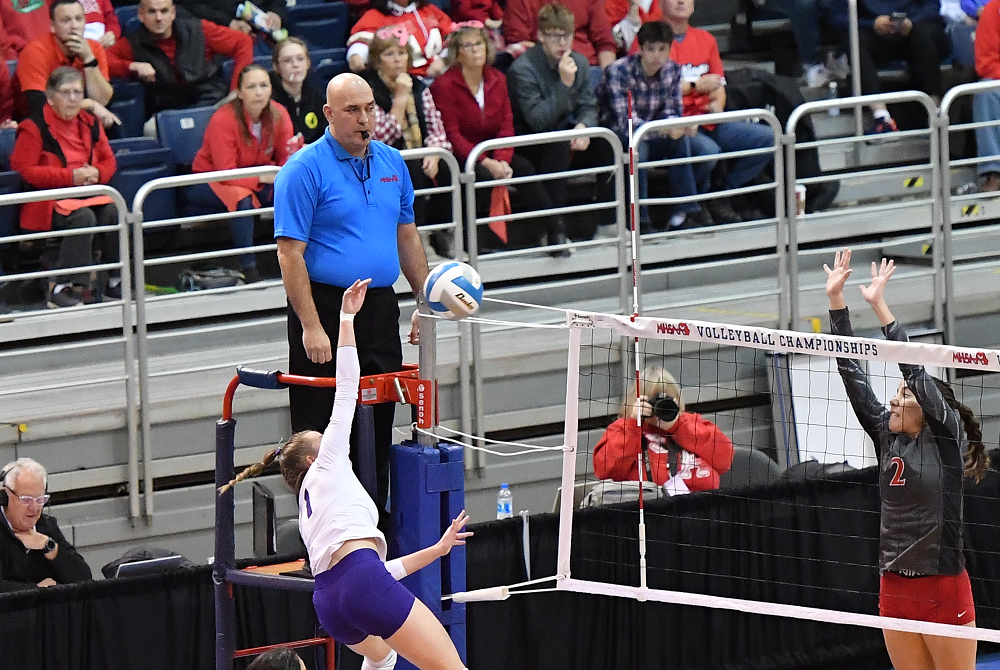
Be the Referee: Ball Hits Soccer Referee
October 1, 2020
This week, MHSAA Assistant Director Brent Rice explains a a change in soccer rules for when a ball makes contact with an official during game play.
Be The Referee is a series of short messages designed to help educate people on the rules of different sports, to help them better understand the art of officiating, and to recruit officials.
Below is this week's segment - Ball Hits Soccer Referee - Listen
We’ve all seen it before in a soccer game. A ball is kicked up the field, but ricochets off an official and leads to a goal scoring opportunity.
In the past, an official would swing his arms to indicate “play on.” A new rule, though, would stop play immediately and restart with a Drop Ball.
New in high school soccer for the 2020-21 school year, when a ball touches the referee which leads to a promising attack, the referee must blow his whistle to stop play and start with a Drop Ball. He should ALSO give a Drop Ball in two other instances: when the ball hits the official and possession changes or when a ball hits the official and goes into the goal.
Past editions
9/24: Clocking the Ball from the Shotgun - Listen

Be the Referee: Registration Process
By
Sam Davis
MHSAA Director of Officials
September 26, 2023
Be The Referee is a series of short messages designed to help educate people on the rules of different sports, to help them better understand the art of officiating, and to recruit officials.
Below is this week's segment – Registration Process - Listen
We talk a lot about the need for registered officials. But how do you sign up? What does it take to become a referee, umpire, or judge?
The steps are simple. Go to MHSAA.com to the “Officials” tab and identify the sport or sports you are interested in. Next, complete the MHSAA Principals of Officiating and the Officials Guidebook Exams.
The Officials Guidebook covers basic elements and procedures for becoming a sports official. This first step of the process covers playing rules, ejection protocols, game assignments, and payment of game fees.
Once you pass the exams, it’s time to connect with a locally-approved officials association. The local associations are the ones that provide the training – whether it’s on the court, on the field, on the mats, or video training – to get that person completely immersed in the rules, mechanics, and coverages of what it takes to become a good official.
Previous Editions
Sept. 20: Animal Interference - Listen
Sept. 13: Feet Rule on Soccer Throw-In - Listen
Sept. 6: Volleyball Jewelry - Listen
Aug. 30: Football Rules Similarities - Listen
Aug. 23: Football Rules Differences - Listen
(PHOTO by Gary Shook.)

